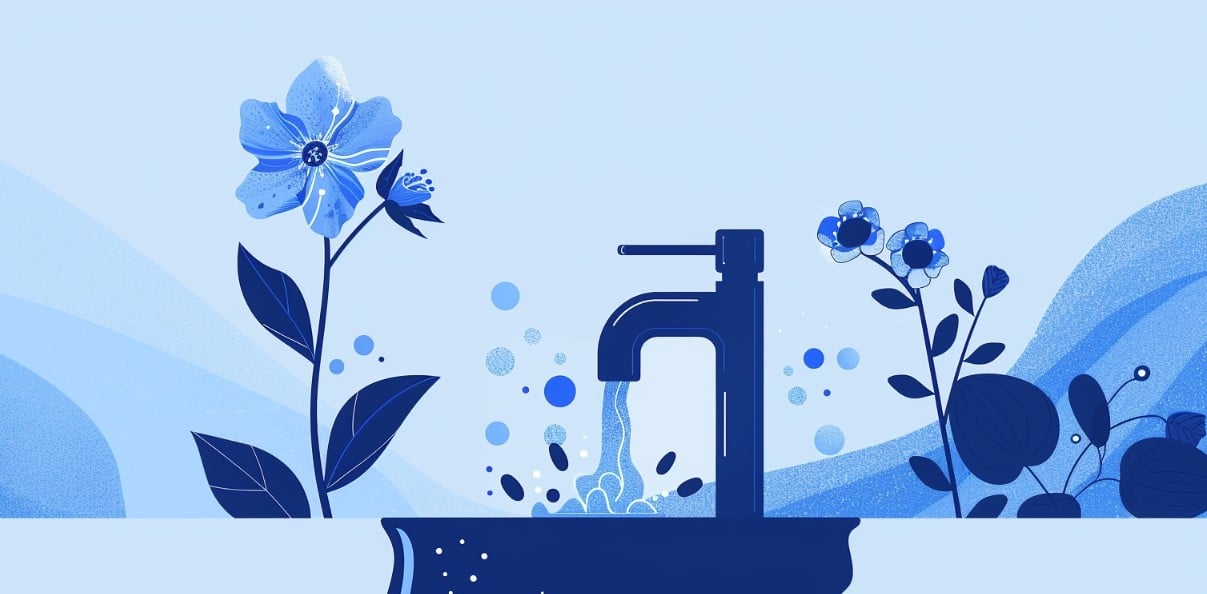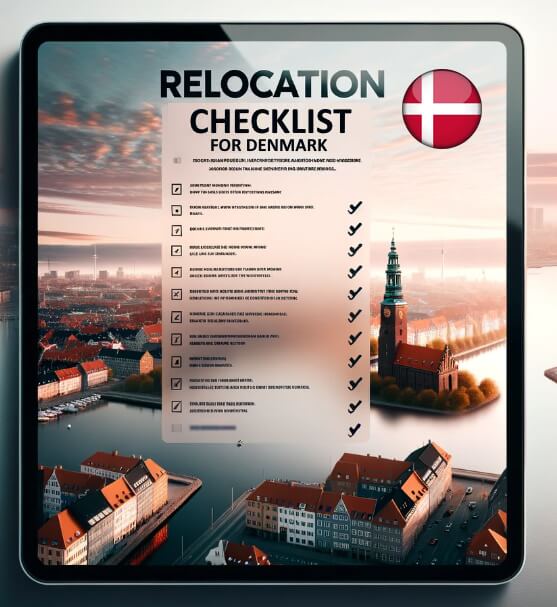Most people usually buy drinking water in a supermarket. So, if you are visiting Denmark for a short or long stay, you will assume that you must keep a drinking water supply in a hotel room, Airbnb, or home. You couldn’t be further from the truth. You can drink tap water in Denmark without breaking into a sweat.
When you ask Danes whether they regularly buy bottled water, they will look confused. Why? Because Danes do not think twice about sticking their glass under the tap to quench their thirst. So, they consider it completely normal even though visitors to their country may find that weird or strange.
Key Takeaways
- Tap water in Denmark is clean and safe to drink.
- The presence of nitrates and hard water is a common problem in Denmark
- Tap water usually tastes good and is refreshing
- Foreigners and visitors may find the taste of tap water strange due to metals, salts, and hardness.
Where Does the Drinking Water Supply Come From in Denmark?
If you are drinking tap water to stay hydrated and quench your thirst, you will want to know the source of that water.
Nearly 99% of drinking water in Denmark is drawn from aquifers. This water is extremely clean and pure and does not need chlorine purification. Nonetheless, in recent years, the government has found that some of the country's drinking water sources have been contaminated with pesticides.
As a result, local communities no longer use these sources. The municipal council is obligated to inform households and businesses if the drinking water quality does not conform to the standard stipulated by the government.
Water suppliers constantly test groundwater to ensure the best quality. To minimize contamination, water supply companies partner with the Danish Nature Agency to plant trees in places where groundwater is extracted for consumption. Also, local farmers are encouraged to use eco-friendly farming methods to minimize the chances of groundwater contamination. So, you have no reason to worry – you can consume tap water whenever you want.

Is Tap Water Treated Before Supplying?
The Danish government believes that drinking water should be pure. So, groundwater that is extracted for consumption fits this line of thought.

The tap water you consume usually undergoes simple treatment without added chemicals. The treatment includes:
- Aeration
- Adjustment of pH
- Filtration
Since groundwater is free of contaminants, it is healthy to drink. The Ministry of Environment in Denmark has been on a crusade to get people to switch from bottled water to tap water. It has been successful to a large extent as tap water is clean and free of pollutants. Also, it is much cheaper than bottled water.
You may worry about consuming untreated water. The good news is that the European Environment and Health Committee has not found the presence of E.coli in the Danish water supply system.
Potential Issues of Drinking Tap Water in Denmark
While tap water in Denmark is pure and clean, it could have a few issues. Some of the problems that you may face are as follows:
Nitrates:
Denmark follows the EU nitrate limit value. However, researchers state that this value is too high and should be lower. That is because scientific studies have demonstrated that nitrates are one of the major causes of bowel cancer. So, drinking tap water can increase your risk of developing colon or rectal cancer. In Denmark, around 5,000 people are diagnosed with colon/rectal cancer yearly.
Chlorine:
Denmark has significantly reduced the usage of chlorine to purify water. Since 2009, Copenhagen has not used chlorine to clean tap water. This means tap water is more palatable and has reduced chances of cancerous byproducts. However, in other cities in Denmark, chlorine is still used, increasing your risk of ingesting cancer-causing byproducts.
Hard Water:
You may find that in nearly all areas of Denmark, tap water is categorized as hard water. While this water does not affect your health and well-being, it can be unpleasant. You will need more water to wash dishes and clothes. Also, childhood eczema and dryness of skin and hair can exacerbate. To overcome these issues, you can install a shower filter.
Sodium Chloride (Salt):
The amount of sodium chloride or salt varies from region to region. This can affect the taste of water. This salt enters groundwater through saline precipitation or due to naturally occurring minerals and salts in the soil.
How Does Tap Water Taste in Denmark
Generally, tap water in Denmark is sweet, but sometimes, it can be slightly bitter to taste. The taste of the water depends on the number of dissolved minerals present, among other things. Hence, groundwater in each region in Denmark tastes different.
When sodium levels are high and chlorine is used to purify the water, it will taste salty. On the other hand, if sulfate levels are high, the water will be bitter to taste. Furthermore, if magnesium is present in the water, it will be soft to feel and get rid of soap and detergent relatively easily.
Which Part of Denmark Has the Best-tasting Water?
Researchers have chemically analyzed tap water in Denmark to determine the taste in different parts of the country. This is what they found:
- Groundwater with the highest sodium chloride content is found in Ishøj and Store Magleby. On the other hand, water in Torplille, Marstal, Hjorthøj, and Skagen has a relatively high salt content. All these areas are located near the coast, so the water in these areas has high salt content.
- The tastiest water in Denmark is found from West Jutland to Central Jutland, particularly in Hjertinge, Kibæk, and Sdr. Resen.
- Tap water in Frederikshavn, Baunehøj, and Asserbo was also considered tasty.
Do You Need a Water Filter to Drink Tap Water in Denmark?
You can rest assured if you are worried about contaminants, pollutants, and harmful microorganisms. Tap water in Denmark is pure and does not contain impurities that can harm your health.
However, you may want to balance the mineral content in the water as high mineral content can have a negative impact on the taste. Also, the presence of rust can make the water undrinkable. If that is the case, you can install a filter to reduce calcium-binding calcium.
Water in Denmark has naturally occurring magnesium, and the filtration system cannot remove it. It is prudent to remember that magnesium is released via the displacement of calcium-binding calcium.
Frequently Asked Questions about Tape Water in Denmark
We have tried to answer some of the questions you may have about tap water in Denmark.
Is the water in Denmark hard?
In many regions across Denmark, you will find hard water, which does not affect your health. However, the hardness can alter the taste of the water due to the presence of minerals and salts.
Can you drink tap water in Denmark?
Denmark has some of the purest and best-tasting tap water in the world. You can rest assured knowing that Denmark has stringent quality control in place. Hence, you can safely drink tap water. The water does not have chemicals and that makes the taste pleasant.
Where does tap water come from?
The tap water in the country is sourced from aquifers. Water supply companies extract groundwater from designated borewells. This water undergoes simple treatment and is then supplied to different municipalities and regions across the country.
Can I balance the sweetness of tap water?
In Denmark, a product called Munch is available. Many Danes use it to balance the sweetness of tap water. It also helps the stomach stay full. However, it is prudent to note that if you use Munch and consume a lot of sugary stuff, it may lead to carbonation in the stomach, causing a gassy sensation. You can alleviate this gassiness through laxatives or by reducing your sugar intake.
Can I drink tap water in restaurants and bars?
Yes, you can drink tap water in restaurants and bars without worries. However, some places may charge you for it if you do not order anything else!
Final Words
Now you know everything there is to know about drinking tap water in Denmark. So, the next time you are thirsty, or your throat is parched, do not head to the supermarket to buy bottled water. Instead, fill a glass with tap water, and you will be completely satiated.


![Drinking Age in Denmark: A Guide for Non-Danes ([year]) drinking age in denmark](https://denmarkexpat.com/wp-content/uploads/2024/05/drinking-age-in-denmark.jpg)



